I’ll work my way from irony to sincerity in the sinking city, a would-be Whitman of the vulnerable grid.
BEN LERNERFew real people appear in my two novels, actually. “Ari” appears on the edge of this book a couple of times – but on the edge, she’s never in it, even if she’s a determining force from the outside. Everybody in the first book was basically made up, if never from scratch.
More Ben Lerner Quotes
-







-





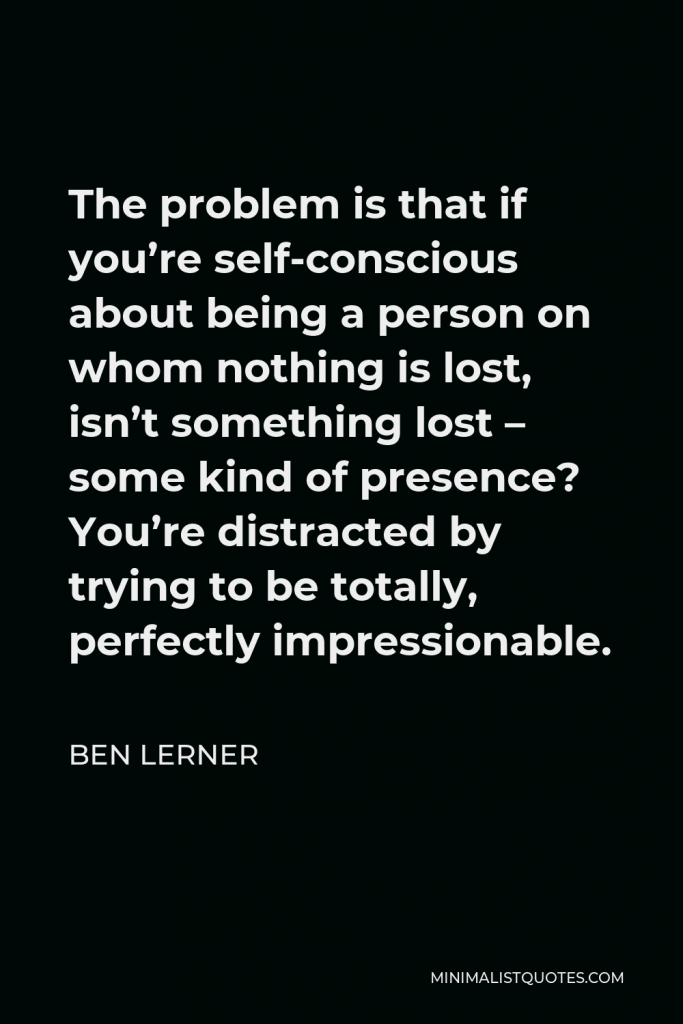

The problem is that if you’re self-conscious about being a person on whom nothing is lost, isn’t something lost – some kind of presence? You’re distracted by trying to be totally, perfectly impressionable.
BEN LERNER -






Anyway I read more contemporary poetry than contemporary fiction so my mind goes first to a kind of crass “conceptualism” that repeats vanguard gestures of the past minus the politics and historical context.
BEN LERNER -







I have no interest in artists who are purely affirmative, who’ve made a commercialized fetish of the culture’s stupidity.
BEN LERNER -





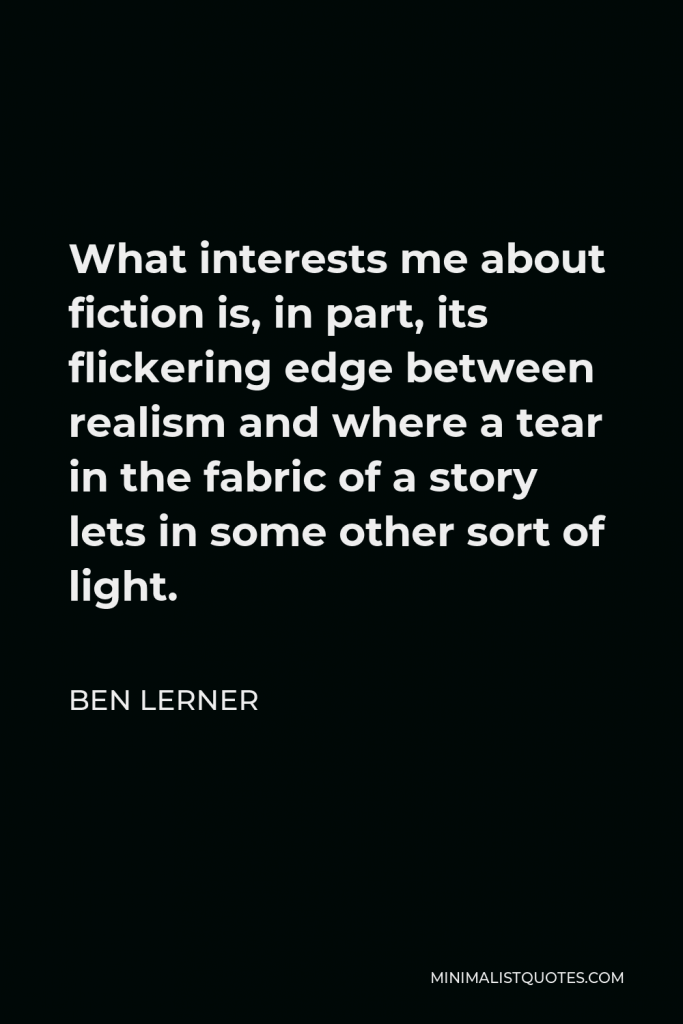

What interests me about fiction is, in part, its flickering edge between realism and where a tear in the fabric of a story lets in some other sort of light.
BEN LERNER -







Henry James claim that if you want to be a novelist you should be somebody on whom nothing is lost.
BEN LERNER -






Maybe now if you’re not an exhibitionist you’re private. Or maybe it’s just that for a lot of people – sometimes in interesting ways, sometimes in stupid ways – there’s no division between the art object and what surrounds it.
BEN LERNER -






I was a violent, bipolar, compulsive liar. I was a real American.
BEN LERNER -





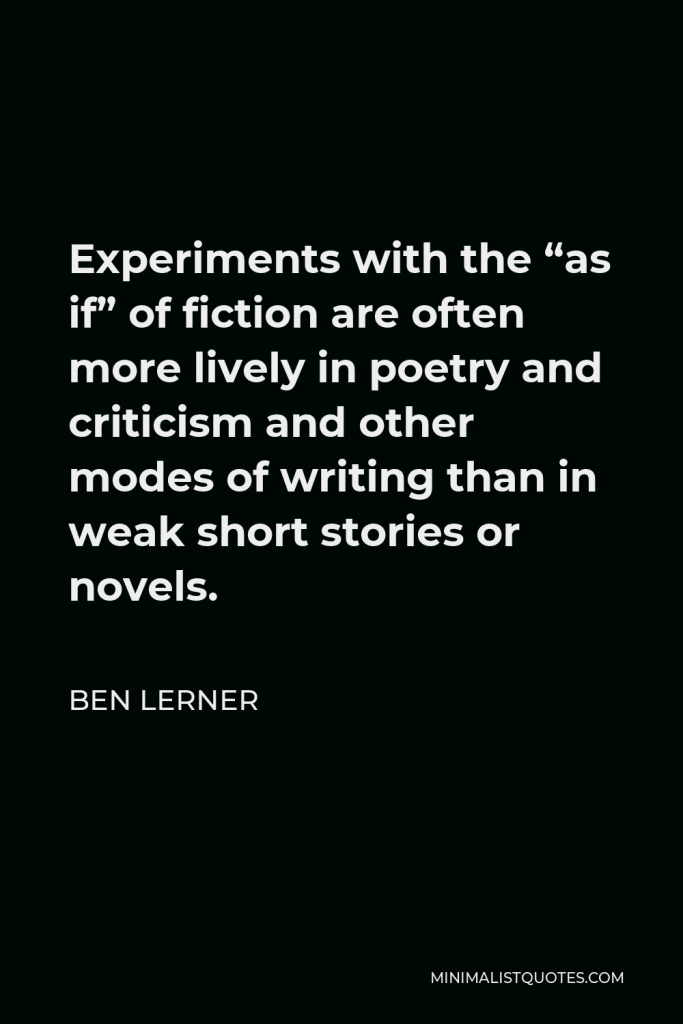

Experiments with the “as if” of fiction are often more lively in poetry and criticism and other modes of writing than in weak short stories or novels.
BEN LERNER -





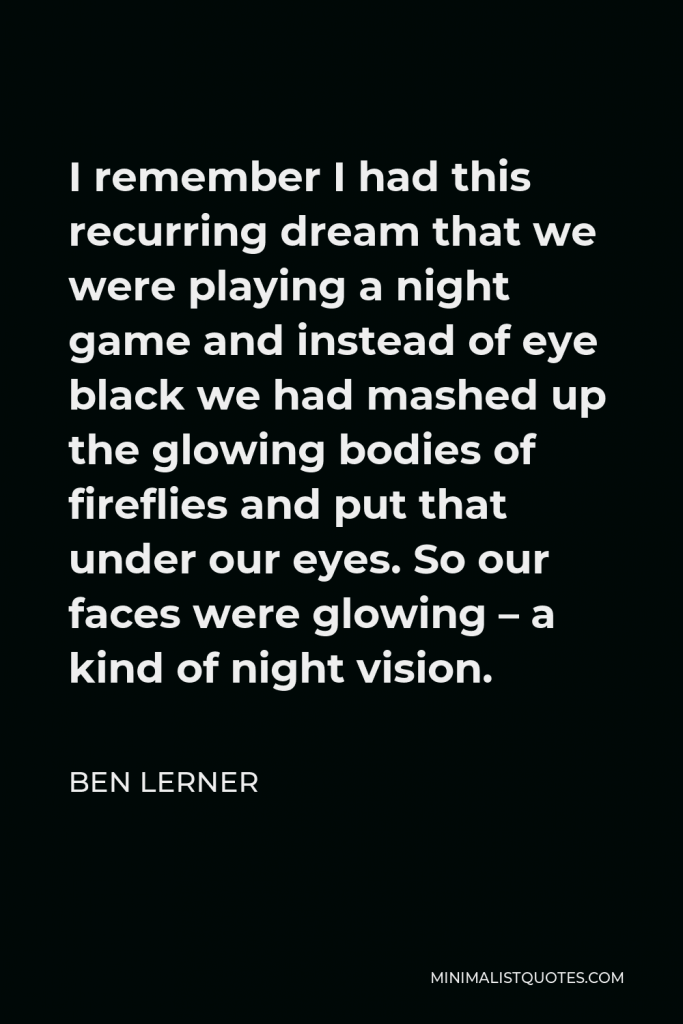

I remember I had this recurring dream that we were playing a night game and instead of eye black we had mashed up the glowing bodies of fireflies and put that under our eyes. So our faces were glowing – a kind of night vision.
BEN LERNER -






I think the anti-intellectualism of a lot of contemporary fiction is a kind of despairing of literature’s ability to be anything more than perfectly bound blog posts or transcribed sitcoms.
BEN LERNER -






I like to think – knowing that it’s an enabling fiction – of those moments as fragments from a world to come, a world where price isn’t the only measure of value.
BEN LERNER -





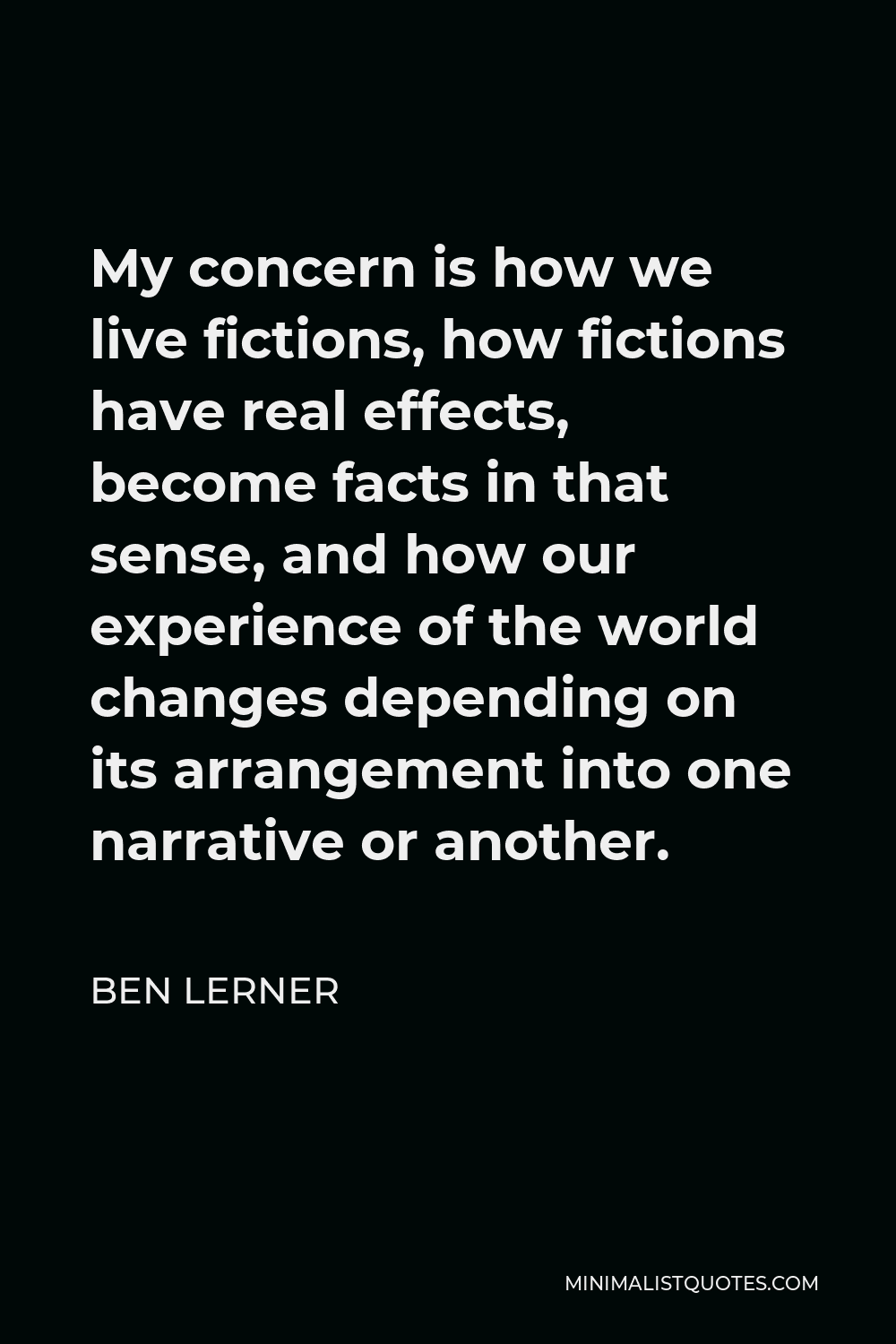
My concern is how we live fictions, how fictions have real effects, become facts in that sense, and how our experience of the world changes depending on its arrangement into one narrative or another.
BEN LERNER -





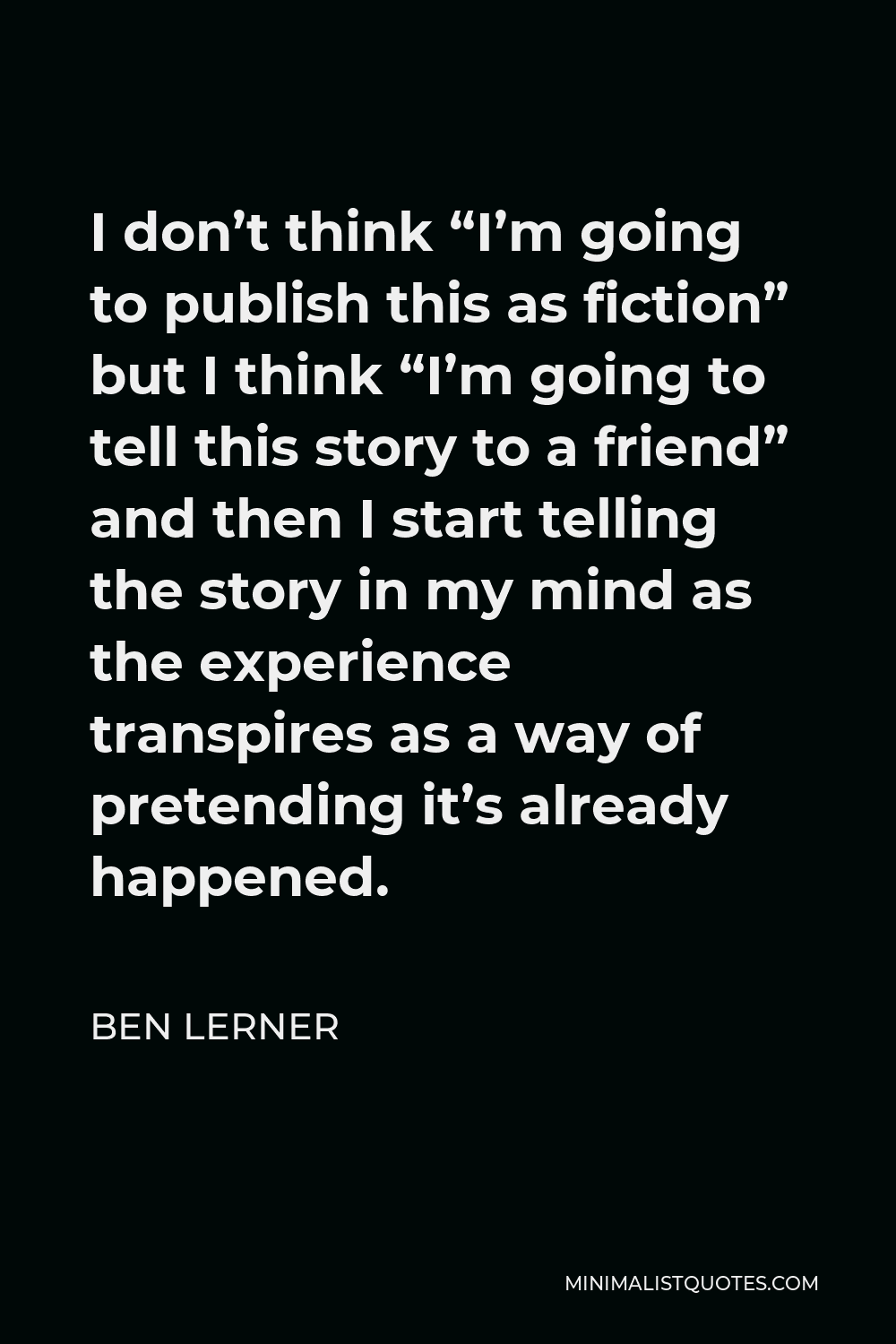
I don’t think “I’m going to publish this as fiction” but I think “I’m going to tell this story to a friend” and then I start telling the story in my mind as the experience transpires as a way of pretending it’s already happened.
BEN LERNER -







I didn’t want to write another book about fraudulence.
BEN LERNER -






I’ve been building a fiction in part around the Marfa poem since my brief residency there, which has kept it from receding into the past.
BEN LERNER







